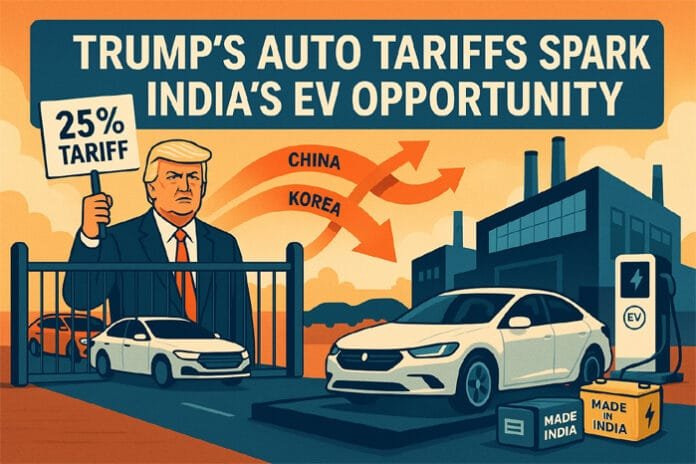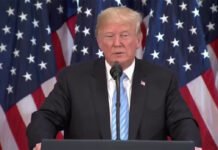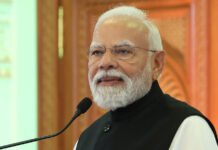Can Indian EV Supply Chains Rise as China, Japan, and Korea Face US Export Shock?
New Delhi — As US President Donald Trump slaps a hefty 25% import duty on cars and auto components, the global automobile market is being shaken to its core — but India might just come out on top.
While direct Indian car exports to the US remain modest, analysts say the real opportunity lies in the ripple effects. This tariff shock is disrupting global EV supply chains, particularly in East Asia — and India, with its “Make in India” EV push, is poised to capitalize.
“This is a strategic opening,” says Saurabh Agarwal, Tax Partner at EY India. “India can now rewire global supply chains to our advantage — especially in EVs.”
Why India’s Auto Component Industry Could Boom
India’s vast auto component sector may be the unsung hero here. With countries like China, Japan, Korea, and Vietnam facing a surplus in EV parts, many companies are now eyeing India — not only as a new consumer base but as a manufacturing and export hub.
Energy expert Shyamashish Das of CSEP points out that India’s soaring demand for quality EVs makes it a magnet for EV tech and parts.
“Asian giants may flood India with EV components, and if Indian players integrate them smartly, our EVs could become globally competitive,” says Das.
No Import Duty on EV Battery Gear – A Game Changer
Finance Minister Nirmala Sitharaman’s recent move to eliminate import duties on 35 capital goods used in EV battery production has opened the floodgates for global EV players to tap into the Indian market.
This could be the golden bridge for Asian manufacturers — especially Chinese firms — looking to shift focus from the now-risky American market. Improved India-China ties could further lubricate this transition.
India’s EV Export Potential is Already Surging
In 2023 alone, India’s EV exports rocketed by 246.3% to ₹2,139 crore, with major buyers like Nepal and France. Experts predict India could be exporting 1 crore EVs annually by 2030, especially two-wheelers and three-wheelers.
However, Pritesh Singh from Nomura Research warns that India still has a quality gap to close if it wants to replace China in premium global markets.
“We can win in the short term, but without massive R&D and quality upgrades, we can’t dethrone China just yet,” Singh explains.















